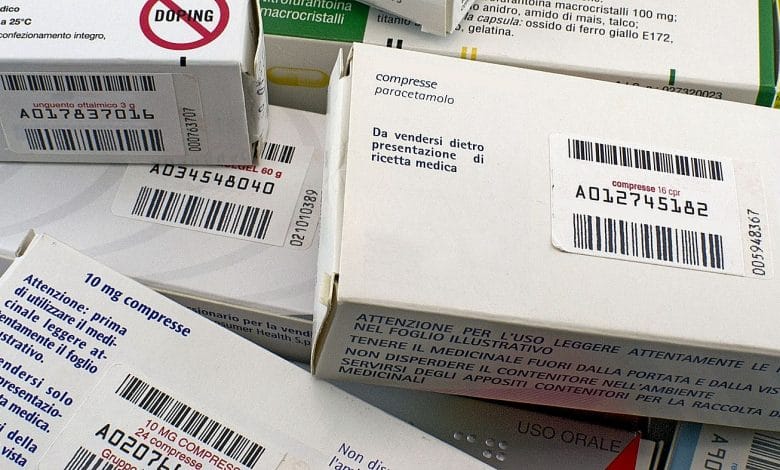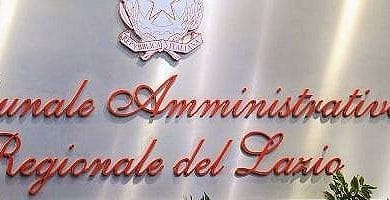
"Faulty" stamps: new seizure in a warehouse, an increasingly intricate case
 The case is becoming increasingly delicate and controversial - currently limited to Campania alone - of defective pharmaceutical stamps. Yesterday the Nas carried out another seizure, the third, against a distributor in the Salerno area: about five thousand blocked packages, which added to those identified last week in the warehouse of a wholesaler in the Avellino area bring the total to fifteen thousand. The defects found by the military are always the same: the punches applied to the boxes do not have the three adhesive layers required by the standards and the identification number can be easily erased from the surface. Exactly the same "irregularities" reported in the complaint which, at the beginning of April, had triggered the first inspection by the Nas, against a pharmacy in the Salerno area. Just over 230 packages were seized, from which the carabinieri then traced back to the two distributors (and a second pharmacy, in Benevento). And that's not all: anyone who has seen the military report assures that purchased drugs purchased directly from manufacturers have also ended up in custody, without intermediate steps. It is therefore possible that sooner or later the Nas will also knock on their door.
The case is becoming increasingly delicate and controversial - currently limited to Campania alone - of defective pharmaceutical stamps. Yesterday the Nas carried out another seizure, the third, against a distributor in the Salerno area: about five thousand blocked packages, which added to those identified last week in the warehouse of a wholesaler in the Avellino area bring the total to fifteen thousand. The defects found by the military are always the same: the punches applied to the boxes do not have the three adhesive layers required by the standards and the identification number can be easily erased from the surface. Exactly the same "irregularities" reported in the complaint which, at the beginning of April, had triggered the first inspection by the Nas, against a pharmacy in the Salerno area. Just over 230 packages were seized, from which the carabinieri then traced back to the two distributors (and a second pharmacy, in Benevento). And that's not all: anyone who has seen the military report assures that purchased drugs purchased directly from manufacturers have also ended up in custody, without intermediate steps. It is therefore possible that sooner or later the Nas will also knock on their door.
Not much more is known at the moment, but there is already enough to make the hypothesis that behind the case there is an attempt to falsify or smuggle medicines improbable: apart from the other anomalies, it suggests that almost the 80% of the seized products belongs to the Sop-Otc category, medicines that are not never been in the crosshairs of criminals (interested only in high-cost, therefore profitable, drugs). This interpretation is further strengthened by the fact that in all three cases (the pharmacy and the two distributors) the Nas entrusted the seized goods in judicial custody to the same owners. And again, there are no charges against the pharmacist, while the technical director of the first inspected warehouse would have been reported only for failure to supervise.
 The elements, in essence, seem to push in one direction, and that is that it is not a case of counterfeit stickers but of "flawed" stickers, i.e. non-compliant ones released from the production chain of the State Polygraphic Office. And it is here that the matter becomes delicate: in March, in fact, the Institute had issued a note in which it was guaranteed that "the pharmaceutical stamps are made in compliance with the ministerial decree of 30 May 2014". And in those same days, responding to a parliamentary question, Minister Lorenzin reported that the new systems installed at the Poligrafico ensure "the full functioning of the drug identification system". The doubts, therefore, remain unresolved for now and it is also for this reason that the day before yesterday Federfarma had written to the Ministry of Health to request indications. An initiative supported, not surprisingly, by the president of the Campania owners, Nicola Stabile: «It is an intricate story» he explains «between dealing with caution because on the one hand we must avoid alarmism, but on the other we cannot fail to note that the kidnappings concern an increasingly large number of products»: Hence, therefore, the appeal to the Ministry. "A clarification to pharmacies and distributors on what to do with defective packs is becoming increasingly urgent, because it is now clear that the problem may not concern only two or three wholesalers or a couple of owners". Not only that: if any responsibilities of the Poligrafico were ascertained, disputes would trigger an avalanche, obviously starting from the industries. Which, it should not be forgotten, pay handsomely for the Institute's stamps: from 22 to 24 euros for each supply of a thousand punches.
The elements, in essence, seem to push in one direction, and that is that it is not a case of counterfeit stickers but of "flawed" stickers, i.e. non-compliant ones released from the production chain of the State Polygraphic Office. And it is here that the matter becomes delicate: in March, in fact, the Institute had issued a note in which it was guaranteed that "the pharmaceutical stamps are made in compliance with the ministerial decree of 30 May 2014". And in those same days, responding to a parliamentary question, Minister Lorenzin reported that the new systems installed at the Poligrafico ensure "the full functioning of the drug identification system". The doubts, therefore, remain unresolved for now and it is also for this reason that the day before yesterday Federfarma had written to the Ministry of Health to request indications. An initiative supported, not surprisingly, by the president of the Campania owners, Nicola Stabile: «It is an intricate story» he explains «between dealing with caution because on the one hand we must avoid alarmism, but on the other we cannot fail to note that the kidnappings concern an increasingly large number of products»: Hence, therefore, the appeal to the Ministry. "A clarification to pharmacies and distributors on what to do with defective packs is becoming increasingly urgent, because it is now clear that the problem may not concern only two or three wholesalers or a couple of owners". Not only that: if any responsibilities of the Poligrafico were ascertained, disputes would trigger an avalanche, obviously starting from the industries. Which, it should not be forgotten, pay handsomely for the Institute's stamps: from 22 to 24 euros for each supply of a thousand punches.





